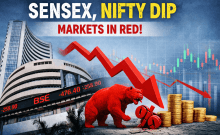
In an age defined by accelerating complexity, global affairs no longer move in isolation or linear progression. Instead, they operate within a delicate and dynamic interplay of forces that shape economies, geopolitics, and societies simultaneously. I call these forces the 5Ts: Trade, Tariffs, Technology, Trust, and Transformation. Together, they are the structural pillars of the evolving world order - ever interwoven, capable of unlocking unprecedented progress or unleashing profound disruption.
Yet amid these challenges lies a historic opportunity to build a future grounded in pragmatic collaboration, inclusive growth, and ethical leadership. This is the essence of a vision I call it as 'Global Synergy for Sustainable Prosperity' - a framework that transcends zero-sum rivalries and fosters collective advancement.
This piece offers a deeply analytical, richly evidenced exploration of the 5Ts, highlighting emerging patterns, data-driven insights, and converging global intentions. It aims to inspire policymakers, business leaders, and civil society to master these forces strategically and ethically.
Trade: Reimagining Global Connectivity for Resilience and Equity
Trade has long been the heartbeat of civilization, enabling not only economic exchange but cultural connection and shared progress. From the Silk Road to today's intricate supply chains, it has lifted billions out of poverty and driven innovation.
But the last decade has exposed the limits of the hyper-globalized model. According to the World Trade Organization's 2024 World Trade Report, global merchandise trade contracted by 1.2% in 2023 a significant turning point after decades of growth. This signals a tectonic shift away from solely cost-driven global value chains toward configurations emphasizing resilience, values, and strategic alignment.
"Friend-shoring" and "near-shoring" have emerged as strategic trends, reshaping supply chains into trusted clusters prioritizing reliability and geopolitical affinity over mere cost advantage.
India exemplifies this paradigm shift. With a $4.3 trillion GDP (IMF, 2025) and a strategic position astride the Indo-Pacific's vital sea lanes, India is investing heavily in port modernization, customs digitization, and regional trade pacts. Its Trade Policy Review 2025 reflects a calibrated approach that balances openness with the protection of critical sectors such as agriculture and electronics.
Globally, multilateral forums echo this new ethos. The Asia-Pacific Economic Cooperation (APEC) 2025 Summit culminated in commitments to "rebuild trade on foundations of resilience, equity, and inclusivity," marking a shared recognition that the future of trade demands fairness alongside efficiency.
Tariffs: From Protective Barriers to Geopolitical Levers - The Case for Collaborative Recalibration
Tariffs have evolved from mere fiscal instruments into potent tools of geopolitical strategy. The US-China trade war is the starkest example - with the IMF estimating that tariff-induced disruptions cost the global economy nearly $700 billion between 2018 and 2022 (IMF World Economic Outlook, 2023).
In 2025, the escalation continued. The U.S. imposed sweeping tariffs ranging up to 50% on imports from key partners, with proposals to levy duties as high as 100% on certain semiconductors (USTR Public Notice, 2025). The immediate effects were market volatility, supply chain upheaval, and heightened diplomatic tensions.
French President Emmanuel Macron captured the essence of this challenge at the 2025 European Parliament: "Tariffs devised by the strongest are often instruments of blackmail, not tools of fair rebalancing." His statement resonates widely, emphasizing the risks of weaponizing trade.
India's response embodies the nuanced path required. It selectively shields emerging industries via tariffs while promoting openness in sectors critical to integration. The government's simultaneous protection of vulnerable sectors and incentives for export diversification (Ministry of Commerce, 2025) reflects a strategic equilibrium balancing autonomy and engagement.
This moment calls for a fundamental shift from tariffs as unilateral weapons toward collaborative recalibration, leveraging multilateral dialogue to balance national interests with global stability.
Technology: The Strategic Nervous System of the Modern Economy - Navigating Sovereignty and Shared Innovation
Technology has transcended its commercial origins to become the very fabric of national security, economic influence, and geopolitical power.
The semiconductor sector exemplifies this. As per IC Insights (2024), Taiwan Semiconductor Manufacturing Company (TSMC) holds over 53% of the global foundry market revenue, a concentration that has triggered massive government investments worldwide. The U.S. CHIPS Act, Europe's Digital Compass, and India's $10 billion PLI semiconductor scheme are urgent responses to this strategic vulnerability.
Chinese President Xi Jinping stressed at Davos 2025 that "Decoupling and severing ties harms others without benefiting oneself; it leads nowhere," signaling the perils of fracturing global innovation ecosystems.
India is ambitiously aiming to leapfrog rather than follow. Through the Digital India and IndiaAI missions, alongside fab project approvals and joint ventures, India seeks to build a robust tech ecosystem. However, challenges persist - skills shortages, regulatory complexity, and supply chain gaps remain to be addressed.
The stakes extend beyond chips and codes to Artificial Intelligence, quantum computing, and biotech, where the future hinges on frameworks that guarantee trusted technology - balancing sovereignty, ethics, privacy, and interoperability.
Trust: The Fragile Keystone of Cooperation and Social Stability
Trust is the invisible but essential currency of global cooperation and domestic governance. It underpins trade agreements, investor confidence, and societal acceptance of change.
Yet, it is alarmingly scarce. The 2025 Edelman Trust Barometer reveals trust in governments at a historic low of 45% worldwide, underscoring pervasive economic anxieties and institutional skepticism.
Even amid rivalry, leaders recognize trust's strategic necessity. Russian President Vladimir Putin, at the 2025 SPIEF, stated, "We must increase mutual trust and broaden integration where interests align," highlighting that trust transcends even geopolitical divides.
For India, building trust is a twofold journey: embedding transparency, accountability, and dispute resolution domestically, while signaling reliability internationally. The World Bank's Governance Indicators 2024 confirm that higher trust correlates with greater foreign direct investment and innovation.
Trust is measurable, actionable, and indispensable the foundation upon which the other 4Ts rest.
Transformation: The Enduring Imperative to Adapt, Include, and Lead
Transformation is not a transient phase but a permanent condition, driven by rapid technological change, demographic shifts, and the urgency of climate action.
The IMF-World Bank 2024 Emerging Markets Report stresses that sustained growth requires strategic investment in education, infrastructure, and regulatory reform.
India's journey from a supply chain participant to an innovation hub and policy leader illustrates the path ahead. Progressive reforms in labor laws, digital infrastructure, and green energy set the stage.
Yet, transformation must be inclusive and sustainable. It must empower marginalized communities and align economic growth with social equity and environmental stewardship.
Emerging Convergence: The Unseen Common Ground Among Global Leaders
Beneath apparent geopolitical divisions lies a profound convergence of intent and pragmatism among the world's leading powers and institutions a recognition that shared challenges demand shared solutions.
French President Emmanuel Macron calls for "balanced globalization" reconciling openness with sovereignty. Chinese President Xi Jinping warns against economic decoupling, emphasizing integrated value chains. Indian Prime Minister Narendra Modi promotes "strategic autonomy with global partnership." WTO Director-General Ngozi Okonjo-Iweala advocates modernizing trade rules to reflect new realities.
Brazilian President Luiz Inácio Lula da Silva, at the BRICS Summit 2024, champions "inclusive multilateralism" and coordinated resistance to economic coercion. Even Russian President Vladimir Putin highlights the need to "increase mutual trust" as a basis for cooperation.
Tech visionaries such as Satya Nadella and Sundar Pichai echo this ethos, calling for responsible innovation embedded in collaborative frameworks.
This emergent common ground, though fragile, forms the bedrock for pragmatic cooperation. It underscores the imperative to move beyond rivalry toward Global Synergy for Sustainable Prosperity.
India's Crucible Moment: Navigating Autonomy, Engagement, and Leadership
India stands at a defining crossroads. Tariff pressures, technological competition, and geopolitical dynamics demand a calibrated strategy.
High-level engagements such as National Security Adviser Ajit Doval's 2025 Moscow talks and Prime Minister Modi's participation at the Shanghai Cooperation Organisation Summit reflect India's nuanced diplomacy balancing strategic autonomy with partnership.
Domestically, India's selective tariff policies, ambitious semiconductor incentives, AI initiatives, and export diversification efforts demonstrate this balancing act. Accelerated reforms in customs, infrastructure, labor, and foreign investment are critical to convert resilience into global competitiveness.
From Fragmentation to Fusion - For a Shared Future
Trade, Tariffs, Technology, Trust, and Transformation are the intertwined forces shaping the world's future. Mastery demands visionary strategy, ethical governance, and collaborative leadership.
The vision of Global Synergy for Sustainable Prosperity offers a blueprint beyond zero-sum paradigms toward inclusive, sustainable, and resilient progress.
India, with its unique strengths and ambitions, can lead this transformation embracing autonomy and integration, innovation and ethics, competition and collaboration.
As Indian poet Rabindranath Tagore wrote, "Faith is the bird that feels the light when the dawn is still dark." The dawn of a new global order is here. The call is to rise, build, and believe.
[Major General Dr. Dilawar Singh is a strategic advisor and thought leader, specializing in geopolitics, technology, and global governance.]

















